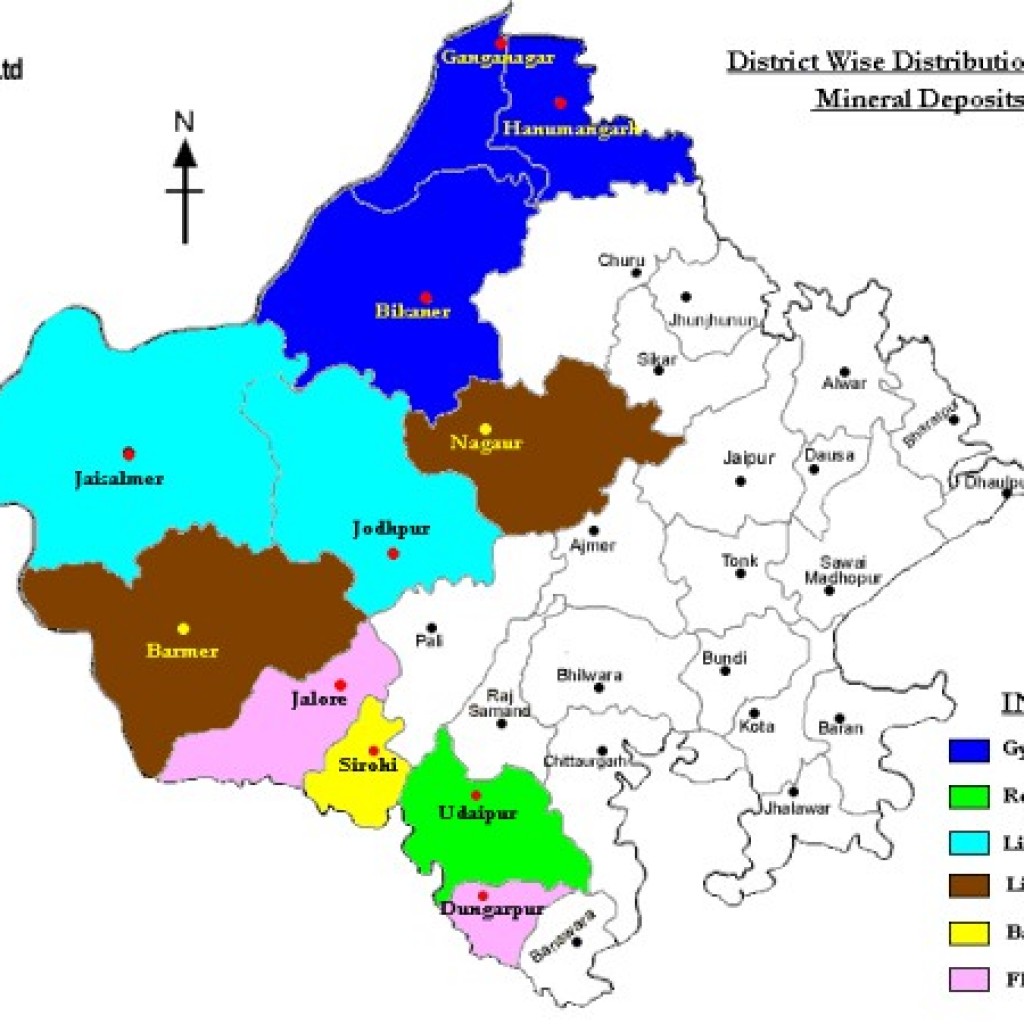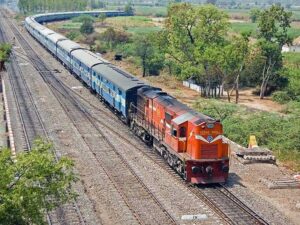Mineral Policy of Rajasthan

By Abha Sharma
Jaipur,December, 21 2015.
Mineral Policy 2015: Mineral Rich Rajasthan’s new roadmap for growth
Rajasthan is endowed with great natural attributes be it the Aravali mountain ranges or the vast Thar Desert. Another feature that makes Rajasthan unique is its rich treasure of minerals. Blessed with 79 varieties, it is virtually a nature’s museum housing both metallic and non-metallic minerals including beautiful building stones. It has a vantage position in having significant resources of radioactive minerals, Lignite, Petroleum and Natural Gas too.
With its 9% share in India’s total mineral production, Rajasthan has virtual monopoly in the production of minerals like Lead, Zinc, Gypsum, Soapstone, Ball Clay, Calcite, Rock Phosphate, Feldspar, Kaolin, Copper, Jasper, Garnet, Wollastonite, Silver, etc. The State is proud to possess huge reserves of Lignite, Crude Oil and high quality Gas. It can also boast of having vast deposits of Marble, Sand Stone and some other unique decorative stones.
Leader in Mineral Production
Mining is not only a major source of employment for the rural and tribal areas in the state, it is also a major source of revenue to the government. Rajasthan is leader in mineral production and mines and minerals have a very important role in the development of the state.
Western Rajasthan has proven large deposits of hydrocarbons and Barmer has estimated reserves of 6.5-7.2 million barrels (900-1000 million tonnes of crude oil equivalent). Almost 25-30 billion cubic metre natural gas reserves have been discovered in Manohar Tiba, Tanot, Dandewala and Shahgarh in Jaisalmer basin. Additionally, 25 million tonnes heavy oil reserves and 53 MT bitumen have been discovered in Bikaner-Nagaur Basin.
Largest Producer of Cement
Rajasthan is the leading producer of cement grade limestone and steel grade limestone also. It is one of the largest cement producing states in India and the largest producer in north and west India with a capacity of over 44 million tons per annum. Scope for Industrial Development in Barmer region of Rajasthan includes Petrochemical based industries such as Polypropylene, Polyethylene, etc.
There are approximately 3,403 mining leases for major minerals and 11,861 minor leases and 18,249 quarry licenses in the state. Needless to say, the private sector too plays a pivotal role in this sector.
NEED FOR NEW POLICY
Significant changes have taken place since the National Mineral Policy 2008 was initiated. The State’s Mineral Policy 2011 revealed certain limitations, particularly in case of minor minerals where provisions of granting mining lease in government land (including forest land) after delineation, proved to be a big hindrance for new grants and for mineral development. The Policy had also been silent regarding allotment of minor mineral concession in the tribal areas and for the upliftment of tribals. Provisions made for allotment of mineral concession by joint venture through RSMML in tribal area also proved to be insufficient and no concessions could be allotted in past year. This adversely affected the mineral exploitation in tribal areas.
In recent past, the construction industry has grown by leaps and bounds. The mineral based industries, especially cement, have assumed bigger dimensions. This sector is poised for major growth. Therefore, it was felt essential that the State now should devise a new Policy with a holistic approach in public interest and to attract new investment in the industrial mineral sector in the State.
Mineral Policy 2015
The New Mineral Policy, 2015 takes cognizance of the fact that the mineral resources are finite. So the emphasis is on introducing cutting-edge technology in exploitation, wastage reduction and encouraging waste recycle. The emphasis is also on widespread job-creation, especially to people belonging to the scheduled castes and backward communities, with an obvious focus on greater revenue to the Government. Therefore, the Policy aims at development of economically sound and stable mining, minerals, metal and mineral reclamation industries; orderly and economic development of domestic mineral resources, reserves, and reclamation of metals and minerals to help assure satisfaction of industrial, security and environmental needs.
The government is also aware towards any adverse impact of mineral extraction and processing upon the physical environment. Therefore, emphasis has also been laid on study and development of methods for disposal, control and reclamation of mineral waste and mined land.
Future of Mining in Rajasthan
The Department of Mines and Geology (DMG) has been formed with the purpose of discovery, development and administration of mineral resources in the State.
Its aims are to:
- customize regulatory framework to suit local conditions for fulfillment of “Minimum Government, Maximum Governance” motto;
- increase Rajasthan’s revenue from mining;
- raise significantly the contribution of mineral sector in the State’s economy;
- increase “land under mining” from the current 0.54% to 1.5%;
- increase the number of minerals under mining from 57 to 79;
- create gainful and secure employment in the mineral sector and provide alternative sources of income particularly for the rural population;
- ensure high participation in mining from different types of business and individuals with strong, efficient and safe mining industry;
- introduce modern technology in exploration and exploitation to facilitate growth in the sector; and ensure ecological responsibility through systematic, scientific and sustainable mining.
The Department of Mines and Geology (DMG), Rajasthan, and the Department of Petroleum are the principal agencies for mineral exploration and mineral administration in the State.
Framework
The Policy Statement can be summed up as a futuristic Policy endeavoring propagation of sustainable mineral extraction regime aiming zero waste. It is to be achieved by adopting systematic and scientific mining with due safety, productivity, conservation, cost-effectiveness.
Objectives
The main objective is to infuse greater transparency and efficiency in grant of mineral concessions by simplifying the procedure and adopting e-governance. The new mineral policy aims to ensure conducive framework of procedural, regulatory, fiscal and legal aspects in the investment regime. The state government wishes to enhance exploration of mineral wealth of the State with the help of in-house facilities available and outsourcing other modern techniques through private participation so that oil and gas exploration and its related production activities can be geared up in the State and value addition in hydrocarbon sector can be stepped up.
The objective is also to develop scientific mining techniques with due regard to safety, productivity, conservation, cost-effectiveness, environmental and social sustainability. Encouraging investors (present and potential) for establishing mineral based industries in the State by creating a favourable and transparent environment and promoting research and development in association with private companies are also the focus of the new mining policy. Besides, the objective is also to develop human resource and fulfillment of social responsibility. The new policy also hopes to develop, enhance and maintain viable infrastructure, boost employment opportunities, curb illegal mining effectively; and also enhance efficiency of departmental officials by conducting trainings and seminars.
Challenges
The state govt. is also aware of the several challenges, both strategic and operational, currently obstructing progress in the sector. These need to be addressed in order to capitalize on the mining opportunity of the State.
Create Investor Friendly Environment
The Government will implement a progressive resource allotment process using a fair and transparent mechanism. It is committed to successful and time-bound implementation of this Policy. In order to ensure that all key aspects are successfully implemented, the Department will identify key initiatives linked with major policy items (e.g. for creating a state-wide mineral map, for increasing business friendliness, etc.).
Review of Policy
The Department is keen to continuously assess the effectiveness of the Policy. In order to achieve this objective, a “Status of the Mining Sector Report” will be published every year. This report will provide comprehensive information on all schemes and programmes, as implemented by the Department. The report will identify progress against targets on the outcome metrics and lagging indicators of success of the Mineral Policy 2015.
Resurgent Rajasthan
The just concluded Resurgent Rajasthan summit witnessed the state government signing 13 MoUs worth Rs. 50,527 crore for Mines and Solar Energy. Of these, 12 MoUs – with accumulative investment of Rs.40,527 crore are related to the mining, steel and cements sectors. These include significant projects in iron ore, lignite, copper, rock phosphate, limestone & dolomite and base metals as well as steel and cement plants. Besides, the Resurgent Rajasthan also inked a sister-state relationship MoU with South Australia to avail of Australia’s expertise in mining and state-of-the art technology with the objective of building a mutually beneficial business action plan.
The chief minister Smt. Vasundhara Raje said at the Resurgent Rajasthan partnership summit that “due to investor-friendly policies investment environment has been created across the State. Now, Rajasthan is moving towards a leading State in economic reforms and investment.”







